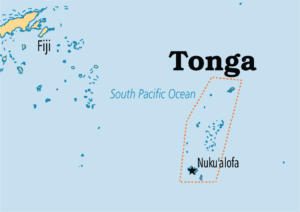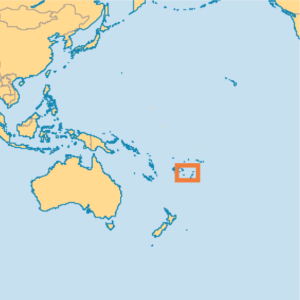TODAY’S READING FROM THE OLD TESTAMENT- EZEKIEL 44:1-45:12
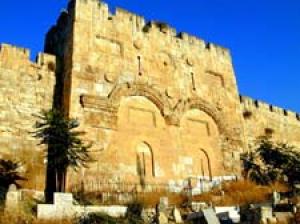 Chapter 44 can be divided into three parts: The Vision of the Prince and the Eastern Gate (44:1-3); the return of the glory of God to the sanctuary (44:4-14); and the instruction and privileges given to the Levitical sons of Zadok (44:15-31).
Chapter 44 can be divided into three parts: The Vision of the Prince and the Eastern Gate (44:1-3); the return of the glory of God to the sanctuary (44:4-14); and the instruction and privileges given to the Levitical sons of Zadok (44:15-31).
Ezekiel is shown that the Eastern Gate is shut, and he is informed that the Lord Himself had shut it. Just when the gate was shut, we are not told. The glory of the Lord had departed from the east gate (Ezek 10:1-22; 11:22-25). However, in a previous vision, Ezekiel saw the glory of the Lord returning never to depart. More details will be given in this chapter.
There is no evidence that the Eastern Gate was closed during the time of either Zerubbabel’s temple or Herod’s temple. The temple was destroyed in 70 A.D. along with the gate. The gate that is there today was rebuilt in the seventh century A.D., perhaps modified during the Crusades and partially destroyed by the Ottoman Turks. The gate was walled up in 1530 A.D. by the Turkish governor of Jerusalem. It has remained closed since.
The only one who is permitted to sit inside the gate to eat in the presence of the Lord is ‘the prince’. Some commentators believe this to be the Messiah since Ezekiel 37:25 says, “David my servant will be their prince forever.” However, the Messiah of the Bible is the Anointed King AND Priest, and this prince is not a priest. He is dependent upon the priests serving him. This prince is required to offer a sin offering for himself, whereas the Messiah was a perfect, sinless High Priest who offered the perfect once and for all sinless sacrifice for the people. He would not need to make an offering for His own sins.
Ezekiel 45:22 22 “On that day the prince shall provide for himself and all the people of the land a bull for a sin offering.”
Whether he is David, resurrected, or some other appointed administrative representative of the Messiah in the future, we are told that this prince will serve as an administrator for the entire temple area.
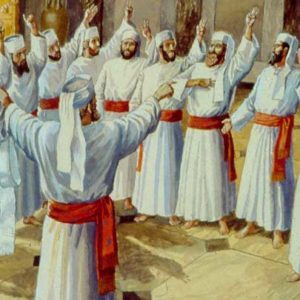 Ezekiel is told to give attention to the entrance of the temple and all the exits of the sanctuary. He is told that the sons of Zadok will serve in a more privileged position in the new temple system. Those priests who had encouraged the sins of idolatry, the other Levites, were given a subordinate status. They had disqualified themselves by their blemished example. They could guard the temple gates and slaughter the animals, but they could not minister unto the Lord as priests in the inner court. This is a reminder that although leaders who repent of moral failure can be forgiven and restored as worshipers in the house of the Lord, one of the consequences of their sin is that their position in leadership is restricted because they have a responsibility of setting an example (1 Tim 3:1-13; 1 Tim 4:12).
Ezekiel is told to give attention to the entrance of the temple and all the exits of the sanctuary. He is told that the sons of Zadok will serve in a more privileged position in the new temple system. Those priests who had encouraged the sins of idolatry, the other Levites, were given a subordinate status. They had disqualified themselves by their blemished example. They could guard the temple gates and slaughter the animals, but they could not minister unto the Lord as priests in the inner court. This is a reminder that although leaders who repent of moral failure can be forgiven and restored as worshipers in the house of the Lord, one of the consequences of their sin is that their position in leadership is restricted because they have a responsibility of setting an example (1 Tim 3:1-13; 1 Tim 4:12).
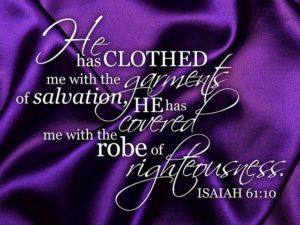 The sons of Zadok were rewarded for standing against idolatry and remaining faithful to David (44:15-16).
The sons of Zadok were rewarded for standing against idolatry and remaining faithful to David (44:15-16).
The regulations for their ministry in verses 17-19 remind us of the privileges belonging to ‘believer-priests’ in the New Testament. The sons of Zadok were to minister to the Lord in linen garments. They were not to wear any wool or anything that would cause sweat (44:18). Linen is a symbol of a righteousness that is not of ourselves (an ‘alien righteousness’). The linen is the product of flaxen seed that falls into the ground and dies in order to bring forth a resurrection harvest (See John 12:24). Linen is vegetable. Wool is from an animal. Wool, when worn, can cause sweat, and therefore it serves as a type of self-righteous justification. In this picture, it is forbidden to wear wool when one is ministering to the Lord.
A change of clothes is required when the priests go out from the inner court to minister to the people. The dominant theme is that believer-priests minister to the Lord first, seek the kingdom of God as their priority, holding fast to the Head of the body, so that in all things Christ will have the preeminence (44:19).
The restrictions on the sons of Zadok are similar to the laws of consecration for those who took the Nazarite vow (Number 6:1-21) and the priests that served the tabernacle (Leviticus 21:1-9).
Chapter 45 explains the allotment of land for the priests, Levites, and the prince. The law calls for just dealings as well as acceptable worship.
The people provide for the service of the tabernacle with their offerings which are given to the Prince. He, in turn, provides for the required offerings that are pleasing to God.
Lamar Eugene Cooper writes in the NAS commentary:
“The system of offerings and sacrifices in the millennial temple will offer no alternative plan for salvation. They will picture the mercy and grace of God available through confession of sin, repentance of the sinner, and faith in Jesus the Messiah, who is the perfect sacrifice and all sufficient offering” (Hebrews 10:10).
TODAY’S READING FROM THE NEW TESTAMENT -1 PETER 1:1-12
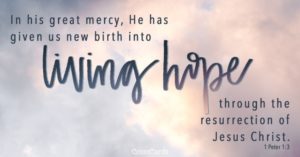 Never cease to be amazed at the gift of salvation! The Apostle Peter tells us that the Spirit of Christ was at work in the Old Testament, inspiring the prophets to diligently portray the sufferings of Christ and the glories to follow. The angels long to behold the wonder of our salvation and are described as leaning in to learn of it even today.
Never cease to be amazed at the gift of salvation! The Apostle Peter tells us that the Spirit of Christ was at work in the Old Testament, inspiring the prophets to diligently portray the sufferings of Christ and the glories to follow. The angels long to behold the wonder of our salvation and are described as leaning in to learn of it even today.
Peter describes the wonder of our salvation. We have forgiveness of our past, the transforming power of God’s presence within us in the present, and a certain hope for the future.
Here in the first chapter, Peter is writing of the mercy we have received. We have been redeemed by the blood of Christ and born of the incorruptible Word unto a living hope. His life in us will be tested. Through those testings, no matter how difficult, we will be refined, and our faith will be revealed as pure as gold at the Coming of Christ.
This Apostle had three names: First, he was introduced as Simon (meaning a reed, frail and perishable as grass). Then Jesus changed his name to Peter (meaning ‘rock’). He was also called ‘Cephas’, the Aramaic equivalent for Peter. This fallible fisherman became a mighty and solid rock, testifying of the gospel of grace in Jerusalem and to the Jews scattered in Asia Minor.
Peter records that he is writing from Babylon, which could either refer to ancient Babylon, Babylon in Egypt, or he could be referring to the city of Rome, using a code name, Babylon. Peter was an apostle ministering predominantly to the Jews, while Paul had been an apostle to the Gentiles. Paul’s strategy was to not go where another had laid a foundation. Paul had been to Rome before Peter. There is no evidence that Peter founded the Roman church, nor was he the first bishop. This epistle was written about 63 A.D. shortly before Paul was martyred in Rome in 64 A.D.
The theme is that in Christ, we have a living hope that emerges from the new life we have received in the new birth. That hope is founded upon the truth of the gospel- Jesus’ substitutionary death and His triumphant resurrection (1 Peter 1:3). Jesus has won for every believer an eternal, incorruptible inheritance. Eternity will reveal the great privileges Christ has won for us.
We can experience the joy of our salvation now, even while we endure trials. God is perfecting us, and this too will be made clear at the revelation of Jesus Christ (the second coming).
We must keep renewing our minds with the truth as we pursue holiness. We will have our challenges in this life. Fix your hope on THE FUTURE GRACE.
1 Peter 1:13 13 Therefore, prepare your minds for action, keep sober in spirit, fix your hope completely on the grace to be brought to you at the revelation of Jesus Christ.
Peter calls upon believers to not forget the fact that Jesus purchased us with His precious blood so we could be free from our old life inherited from Adam. Now live as a pilgrim in the light of eternity, and love one another.
TODAY’S READING FROM THE BOOK OF PSALMS- PSALM 119:17-32
We have the next two sections of Psalm 119. Verses 16- 24 all start with the Hebrew letter ‘gimmel.’ Verses 25-32 start with the letter ‘Daleth.’
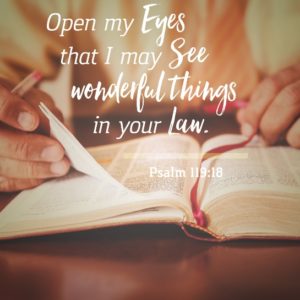 Each verse reflects the Psalmist’s love for the Word. Verse 18 is a prayer we can pray every time we come to read the Word.
Each verse reflects the Psalmist’s love for the Word. Verse 18 is a prayer we can pray every time we come to read the Word.
Psalm 119:18 18 Open my eyes, that I may behold Wonderful things from Your law.
Are the Lord’s testimonies your delight? Do you let them counsel you?
As you read these words, take note of all that the Psalmist says that the Word can accomplish in your life!
TODAY’S READING FROM THE BOOK OF PROVERBS- PROVERBS 28:8-10
Proverbs 28:8-10 8 He who increases his wealth by interest and usury gathers it for him who is gracious to the poor. 9 He who turns away his ear from listening to the law, even his prayer is an abomination. 10 He who leads the upright astray in an evil way will himself fall into his own pit, but the blameless will inherit good.
Verse 8 warns us to treat others fairly and that according to God’s law, wealth acquired by unjust means will eventually go to the poor. God’s people were not to take advantage of another Israelite’s predicament.
Verse 9 reminds us that God is not likely to answer the prayers of those who have no intention of listening to Him.
We are reminded of what we read in the Book of James: James 1:7-8 7 For that man ought not to expect that he will receive anything from the Lord, 8 being a double-minded man, unstable in all his ways.
Of course He will hear the prayer of sincere repentance.
Verse 10 reminds us that those caught up in doing evil and leading others to do the same will find themselves getting caught! Those who do right will be rewarded. This also shows that people who have walked righteously are still in danger of being subject to corrupting influences. So be on the alert!
PRAY FOR THE NATIONS -TONGA, TRINIDAD and TOBAGO-
(from “Operation World Prayer Guide” and Prayercast.com)
Tonga
Pacific
Tonga is an archipelago in the South Pacific Ocean consisting of 171 coral and volcanic islands, 36 of which are inhabited by 108,000 people. Tonga is unique among Pacific nations in that it never completely lost its native governance. Tonga was a British protected state from 1900-1970 and later became fully independent. It remains the only monarchy in the Pacific, though there is a growing movement towards democracy, and the first prime minister was elected in 2006.
Most of Tonga’s food must be imported. New Zealand is a main source and is also home to many Tongan expatriates. The number of Tongans living abroad is now higher than the population of Tonga itself. The economy is mainly supported by these workers, followed by tourism due to the beautiful tropical beaches, rainforests, and active volcanoes. The government is developing in the areas of finance, health, and education and also seeks to upgrade agricultural productivity. High unemployment, especially among the youth, remains an issue. Developing the island’s communication and transportation systems could provide help in this area.
Tonga’s red flag includes a bold red cross on top of a white rectangle; the cross represents the nation’s deep-rooted Christianity. Though this rich Christian heritage is a blessing, as reflected by their national song (which calls God their defense and praises His love for them), it has reached the point of oversaturation, and nominalism plays a large role. The variance in denominations creates competition among churches, and believers are pulled away, often seeking the church they believe will benefit them the most rather than looking for the part they can play in God’s kingdom. Many believers look for value in good works rather than God and the Bible. Tonga has the highest national percentage of Mormons. As the nation’s largest employers are Mormon, there are financial perks to switch to the religion. May the Tongan people find freedom in Christ and reclaim the dynamic faith of their forefathers, as they see the prayer for protection from their national song answered by God.
Geography
Archipelago of 171 coral and volcanic islands, 36 being inhabited, 600 km east of Fiji.
Population: 104,260 Annual Growth: 0.46%
Capital: Nuku’alofa
Urbanites: 25.3%
HDI Rank: 99 of 182 (UN Human Development Reports 2009)
Peoples
Official language: Tongan Languages: 3 All languages
Religion
Largest Religion: Christian
|
Religion |
|
Pop % |
Ann Gr |
|
99,839 |
95.76 |
0.4 |
|
|
16,110 |
15.5 |
0.4 |
Challenges for Prayer
Pray for emigrant believers to cling to the truth of God’s word as they adapt to life in their host nations.
Pray for freedom from the love of money among young adults tempted to seek riches abroad.
Pray for hope and eternal purpose for youth turning to crime and drugs as solutions to boredom.
Tonga’s rich Christian heritage is a blessing, but has reached the point of oversaturation. The proliferation of denominations generates competition among churches, as newer groups entice believers away. Isolation and the difficult economic situation complicate issues further. Pray that Tongan Christians would seek ways to contribute to the Kingdom of God rather than seeking the church that benefits them the most.
Trinidad & Tobago
 Republic of Trinidad and Tobago
Republic of Trinidad and Tobago
Caribbean
Located off the coast of Venezuela, Trinidad and Tobago is one of the Caribbean’s most prosperous nations as a result of petroleum and natural gas production. Other exports from this industrious nation include asphalt and tobacco. Trinidad and Tobago have a high population of Africans, who were enslaved until 1834. Contract laborers from India replaced the African slaves through the early 20th Century, further diversifying the population. This diversity is celebrated to this day with the national motto: “Together we aspire, together we achieve.”
Trinidad and Tobago gained independence from Britain in 1962, and a constitution was ratified in 1976. Today, Trinidad and Tobago are governed by a parliamentary democracy, which helps to maintain unity amongst the diverse cultures. Although the nation remains 99% literate, the high unemployment rates for youth are resulting in growing violent crime, especially related to drug trafficking. Many blame North American media for penetrating the country with symbols of material wealth such as cars, homes, and fashion. Women are objectified in a culture that emphasizes physical beauty. It is also common for men to sexually harass women in public, and women risk loss of social status if they respond. In addition, Trinidad and Tobago has one of the highest incidences of HIV/AIDS in the world.
Around one-fourth of the population is identified as Protestant, while another fourth is Roman Catholic. The rest of the population is mainly Hindu and Muslim. The variety of religions results in syncretistic beliefs within the Christian Church, including witchcraft, which is accepted within the culture. Though the number of Evangelicals is growing rapidly as a result of cross-cultural missionary efforts, an unintended consequence has been the creation of a culture of dependence on visiting foreign nationals.
Geography
Two islands off the coast of Venezuela.
Population: 1,343,725 Annual Growth: 0.38%
Capital: Port of Spain
Urbanites: 13.9%
HDI Rank: 64 of 182 (UN Human Development Reports 2009)
Peoples
Peoples: 15 (13% unreached) All peoples
Unreached Peoples Prayer Card
Official language: English Languages: 7 All languages
Religion
Largest Religion: Christian
|
Religion |
|
Pop % |
Ann Gr |
|
881,349 |
65.59 |
0.5 |
|
|
271,568 |
20.2 |
3.4 |
Challenges for Prayer
Cross-cultural vision is quite small but growing. The nation needs to move from a receiving mentality to a sending mentality. Pray for greater awareness of local and world needs, and for effective training to be given in cross-cultural outreach. A handful of Trinidadians work overseas as missionaries; pray for more. YWAM and WBT recently opened centers on Trinidad. These two groups as well as OM are active in mobilizing and sending workers abroad.
Pray for strong theological training in this country with many churches but few disciples.
- Pray for greater utilization of the freedom to share the Gospel within the schools.
- Pray for bold witness from believers with Hindu and Muslim backgrounds.
PRAYER- Heavenly Father, we stand amazed as we contemplate the gift of salvation. We were dead in our trespasses and sins, blind to Your virtues, and rebels at heart. Yet in Your great love, You sent Your Son to be our sin-bearing Savior, that we would know Your mercy. He bore our due punishment under the Law, canceling our sin debt, erasing our record of wrong, enriching our present, and giving us a certain hope for our future in Your eternal kingdom. We fix our eyes on the future grace that is to be brought to us at the Second Coming. Help us prepare our minds for action that we might live as advertisements for the Kingdom Age to come. In Jesus’ Name. Amen.
-Pastor David

